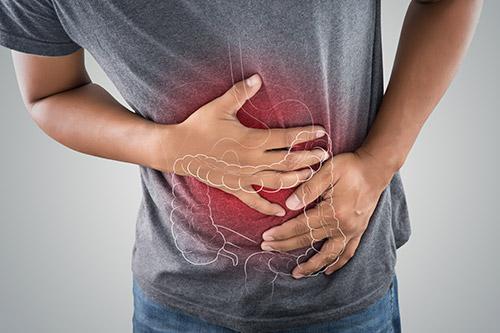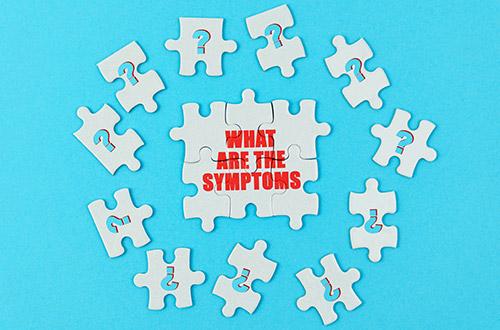10 signs of an unhealthy gut
Published
10 signs of an unhealthy gut
- Stomach pain
- Diarrhoea
- Constipation
- Bloating and gas
- Blood in the stool
- Weight loss
- Vitamin and mineral deficiency
- Indigestion
- Nausea and vomiting
- Mouth ulcers, rashes and joint pain
What is an unhealthy gut? As a gut health health expert, I find there’s a lot of confusion around the term “gut health”. It means different things to different people. In the press, social media and advertising, “gut health” is often just a vague concept to be aspired to without anyone saying what it actually is. In this context, “gut health” is largely a marketing gimmick used to sell the latest supplement or probiotic.
But when doctors talk about “gut health”, we’re referring to specific disorders or problems with the gut, such as irritable bowel syndrome, bowel cancer or inflammatory bowel disease. Poor gut health is not a hidden condition that you may or may not have. If you’ve got poor gut health you’ve got a specific bowel disorder with symptoms, signs and that we can often pick up with diagnostic tests. So what’re the main signs of an unhealthy gut to watch out for?
1. Stomach pain
Stomach pain is one of the commonest gut symptoms and it can have many causes. The commonest cause of persistent stomach pain is actually irritable bowel syndrome (IBS). This is a disorder of the gut-brain axis where people are hyper-sensitive to the normal stretching of the bowel wall. But to diagnose IBS, we need to rule out other common conditions that cause stomach pain such as inflammatory bowel disease, bowel cancer and coeliac disease.
2. Diarrhoea
Diarrhoea means opening your bowel more often and/or having looser stools than what’s normal for you. The “normal for you” part is really important because it’s “normal” for people to open their bowels between anywhere between three times a day and 3 times a week and everyone’s stool consistency is different. So one person’s idea of diarrhoea is totally different to someone else’s. Diarrhoea is often caused by infection with a bacteria, virus or parasite. But if it’s persistent, then we have to think about conditions such as inflammation, IBS, coeliac disease and bowel cancer.
3. Constipation
As with diarrhoea, constipation means that you’re opening your bowels less often than usual for you and / or that your stools are harder than usual. For some people, long-standing constipation without any specific cause can essentially become the “norm” and this is called functional constipation. IBS is another common cause for constipation. More rarely, bowel cancer can cause constipation because the tumour can cause a partial blockage of the bowel, slowing transit.
4. Bloating and gas
“Bloating” describes the subjective sensation you feel when your stomach feels blown up or tight, it’s rumbling unpleasantly and you may feel that you’re belching or passing wind more than usual. Some people also experience measurable abdominal distension, where the stomach actually swells up like a balloon. Common causes of bloating include IBS, infection with the stomach bug H. pylori and coeliac disease.
5. Blood in the stool
Seeing blood in your stool can be alarming but you’d be surprised at how common this is. Most people will have it at some point. Usually this is due to haemorrhoids (piles) or a tear in the bottom (a fissure). In these cases the blood is fresh and bright red because it’s coming from the anal area. If bleeding happens higher up the bowel, from a tumour or inflammatory bowel disease, it’s often darker red and mixed in with the stool. You can actually have blood in the stool without even seeing it. This is what we pick up when we screen for bowel cancer with a qFIT test.
6. Weight loss
Weight loss is quite a “general” symptom that can have gut-related and non-gut-related causes. Having bowel symptoms and unintentional weight loss is often a “red flag” for a significant gut disorder like coeliac disease, inflammatory bowel disease or bowel cancer. In contrast, conditions like irritable bowel syndrome can cause the same gut symptoms but don’t cause weight loss.
7. Vitamin and mineral deficiency
Your gut is the main site of vitamin and mineral absorption from your diet. If your gut is inflamed, it can’t absorb nutrients properly which can lead to vitamin and mineral deficiency, such as vitamin B12, vitamin K and iron. Sometimes vitamin and mineral deficiency can be the only sign of a problem with the gut. For example, so-called “silent coeliac disease” causes no gut symptoms but can still cause a deficiency. Iron deficiency in a person over 50 can often be the only sign of bowel cancer.
8. Indigestion
Indigestion is a bit of a vague term that people may use to describe upper stomach pain, heartburn and reflux. The medical term for indigestion is “dyspepsia”. The commonest cause of indigestion is “functional dyspepsia” where people have the symptoms of indigestion but no cause can be found. It’s a disorder of gut brain interaction like IBS. Other causes include a hiatal hernia, H. pylori infection, coeliac disease, an ulcer and small intestinal bacterial overgrowth.
9. Nausea and vomiting
If nausea and vomiting is quite sudden then a short-term infection with a virus, bacteria or parasite is usually to blame. This tends to settle pretty quickly. If the symptom is more long-term then H. pylori and coeliac disease should certainly be considered. More rarely, acute severe vomiting can be a sign of a blockage in the bowel. For example, bowel cancer can sometimes do this, as can scar tissue from a previous operation on the gut.
10. Mouth ulcers, rashes and joint pain
Sometimes you can have symptoms that seem pretty unrelated to the gut but are still caused by a gut condition. Frequent mouth ulcers can be a sign of Crohn’s disease. Unexplained, persistent rashes can also be a sign of Crohn’s disease or coeliac disease. Lastly, inflammatory bowel disease can also cause joint inflammation and pain.
Get tested to figure out if you have an unhealthy gut
As you’ve probably noticed, a lot of gut conditions can cause the same symptoms. Sometimes it’s really hard to tell the difference between IBS, inflammation and bowel cancer. This is where testing comes in. We have simple blood and stool tests for the majority of bowel conditions and this is the quickest and most reliable way to figure out if you have an unhealthy gut.
Find out if you have an unhealthy gut with our Complete Gut Health Test and Symptom Screen
Get tips on better health
Sign up to our emails on the better way to better health.
We'll keep you up-to-date with the latest research, expert articles and new ways to get more years of better health.








